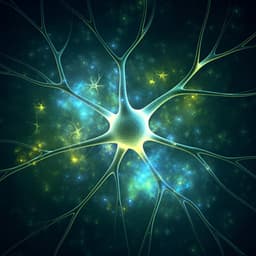
Psychology
A critical evaluation of QIDS-SR-16 using data from a trial of psilocybin therapy versus escitalopram treatment for depression
B. Weiss, D. Erritzoe, et al.
This research conducted by Brandon Weiss, David Erritzoe, Bruna Giribaldi, David J Nutt, and Robin L Carhart-Harris delves into the limitations of the Quick Inventory of Depressive Symptomatology while revealing that psilocybin therapy may outperform traditional escitalopram treatment in alleviating major depressive disorder symptoms.
Related Publications
Explore these studies to deepen your understanding of the subject.







